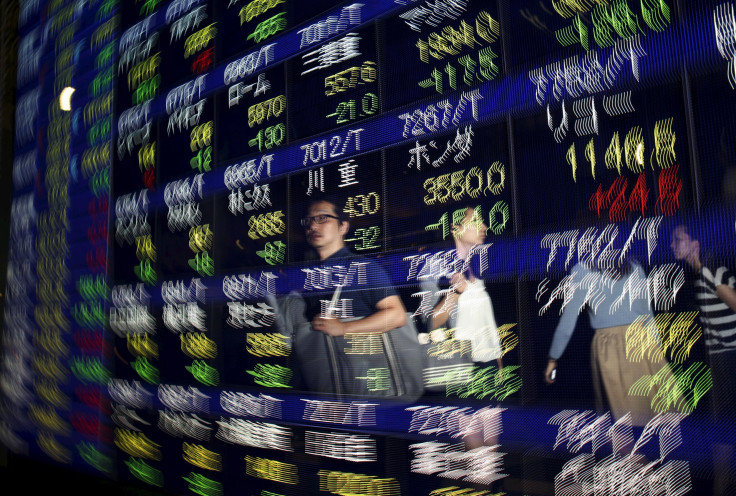Volatility Continues On Asian Markets After US Fall, As Investors Digest Chinese Rate Cuts

There was renewed volatility on Asian markets in morning trading on Wednesday, as investors digested China’s announcement of a cut in interest rates and the bank reserve requirement ratio, which failed to prevent a fall on the Dow Jones Industrial Average in New York on Tuesday.
In Tokyo, the Nikkei Index opened down 0.2 per cent, after Tuesday’s fall of more than 3.9 percent. However it later rebounded, finishing the morning 0.5 percent up, and rising again in early afternoon trading - by 1 p.m. local time (12 a.m. EDT) it was up 1.3 percent, though continuing fluctuations suggested that jitters remained.
In China, the response to Tuesday's rate cuts was a mixed one. The main Shanghai Composite Index at one point fell sharply, before regaining ground to finish the morning session up 0.8 percent at 2988. The secondary index in Shenzhen, however, closed down 0.2 percent after a morning of volatility, and the Nasdaq-like ChiNext Index lost 1.3 percent of its value. All three Chinese indices fell by more than seven percent on Tuesday.
Hong Kong’s Hang Seng Index, which had risen in late trading on Tuesday, opened lower, before recovering to finish the morning just over 0.2 percent higher.
Australia’s ASX200 Index, which rose more than 2 percent on Tuesday, also opened down, losing 1 percent in early trading, as traders digested the impact of the U.S. falls, before recovering slightly to close 0.4 percent lower. Prime Minister Tony Abbot, however, was quoted by local media as saying that market turmoil was simply a correction following “over-exuberance” during the boom of the Chinese stock market earlier this year, and there was no reason for Australians to lose confidence in their nation’s economic future.
Analysts generally welcomed Tuesday’s announcement by the People’s Bank of China to cut interest rates by a quarter of a percentage point, and to cut the bank reserve requirement ratio by half a percentage point in order to enable banks to lend more money. However, many analysts, including from Goldman Sachs, suggested that this would not be sufficient in itself to reverse the slowdown in China’s economy, which has affected global investor sentiment. Researchers at ANZ Bank predicted a further cut in the reserve requirement ratio in the final quarter of the year, and said China also needed to undertake "more financial liberalization."
Chinese state media meanwhile sought to reassure global opinion, saying that neither the slowdown nor the falls on the Chinese market -- which lost more than 20 percent of its value over the previous three trading days -- were cause for panic. The official Global Times newspaper sought to calm readers by emphasizing that “the Chinese stock market and the economy are not closely related." However, it did acknowledge that amidst the market uncertainty, "ordinary [Chinese] investors will be better off being spectators."
© Copyright IBTimes 2024. All rights reserved.





















